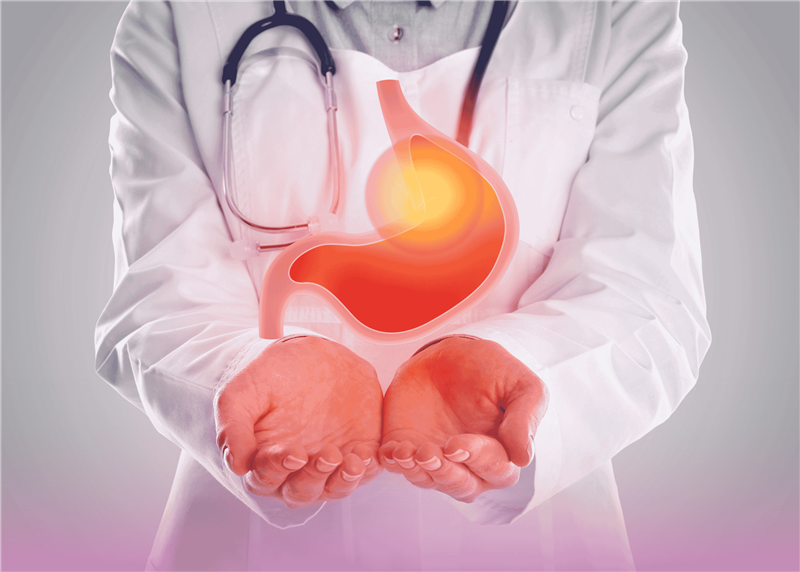Gastrointestinal disorders such as GERD and Achalasia can significantly impact quality of life if left untreated. While both conditions affect the esophagus and have overlapping symptoms, they are distinct in cause, diagnosis, and treatment approaches. In this blog, we’ll explore what is GERD, what is Achalasia, their symptoms, types, and the most effective treatments available today.
What is GERD?
GERD, or Gastroesophageal Reflux Disease, is a chronic condition where stomach acid frequently flows back into the esophagus, causing irritation and discomfort. This backwash, or acid reflux, can lead to inflammation, erosion, and long-term complications if not managed.
GERD Meaning and Causes
The term GERD refers to a digestive disorder where the lower esophageal sphincter (LES) doesn’t function properly, allowing acid to escape from the stomach back into the esophagus. Common causes include:
- Weak or relaxed LES
- Obesity
- Hiatal hernia
- Pregnancy
- Smoking
- Certain medications
Types of GERD
GERD is not one-size-fits-all. It can present in different forms, including:
- Non-Erosive Reflux Disease (NERD) – Reflux without visible esophageal damage.
- Erosive Esophagitis – Inflammation or damage to the esophagus lining.
- Silent GERD – GERD without the classic symptoms like heartburn.
GERD Symptoms
Recognizing GERD symptoms early is key to effective management. Common signs include:
- Heartburn (burning sensation in the chest)
- Acid regurgitation
- Chronic cough
- Sore throat or hoarseness
- Difficulty swallowing
- Chest pain
GERD Treatment: How to Cure GERD Permanently
Wondering how to cure GERD permanently? While lifestyle changes and medications help manage symptoms, long-term relief often requires a combination of the following:
Lifestyle Modifications:
- Eat smaller meals
- Avoid spicy and acidic foods
- Maintain a healthy weight
- Elevate the head during sleep
- Quit smoking
Medications:
- Antacids
- H2 blockers
- Proton pump inhibitors (PPIs)
Surgical Options:
- Fundoplication – strengthens the LES
- LINX device – a magnetic ring implanted to support LES function
What is Achalasia?
Achalasia is a rare, chronic disorder where the esophagus loses its ability to move food toward the stomach due to damage in the esophageal nerves. Unlike GERD, where acid flows up, achalasia involves a failure of the lower esophageal sphincter to relax, preventing food from entering the stomach.
Achalasia is sometimes referred to as cardiospasm due to the spasmodic closure of the lower esophageal sphincter.
Achalasia Causes and Risk Factors
The exact cause of achalasia is unknown, but it may be linked to autoimmune damage or viral infections that affect the esophageal nerves.
Achalasia Symptoms
Symptoms of achalasia often develop gradually and may include:
- Difficulty swallowing (dysphagia)
- Regurgitation of undigested food
- Chest pain
- Weight loss
- Heartburn-like sensation
- Nighttime coughing or aspiration
In some cases, Aspiration pneumonia can occur if food or liquids are inhaled into the lungs. Bronchiectasis, a chronic lung condition, may develop over time as a complication of frequent aspiration.
Achalasia Treatment Options
Treatment focuses on relieving symptoms by relaxing or opening the LES.
Nonsurgical Treatment for Achalasia
- Balloon dilation – Widens the LES using a balloon inserted endoscopically
- Botox injections – Temporarily relaxes the LES
- Medications – Nitrates or calcium channel blockers to relax the esophageal muscles
Surgical Treatment for Achalasia
- Heller Myotomy – A minimally invasive surgery to cut the LES muscle
- POEM (Peroral Endoscopic Myotomy) – A newer endoscopic procedure with faster recovery
- In some cases, a partial fundoplication may be combined with surgery to prevent reflux
Best Achalasia Doctors and Where to Seek Help
If you’re experiencing symptoms of GERD or achalasia, it’s essential to consult a specialist. The best achalasia doctors are usually gastroenterologists or thoracic surgeons experienced in advanced diagnostic and therapeutic techniques like manometry, endoscopy, and minimally invasive surgery.
At Burjeel Medical City, our expert team offers state-of-the-art diagnostic tools and personalized treatment plans for both GERD and Achalasia, ensuring comprehensive care and long-term relief.
In a nutshell
While GERD and Achalasia share some overlapping symptoms, they are distinct conditions that require different approaches to diagnosis and treatment. Early intervention, accurate diagnosis, and access to experienced specialists are key to managing these disorders effectively.
If you are experiencing symptoms or looking for guidance, don’t delay—consult the experts at Burjeel Medical City today for world-class care.


